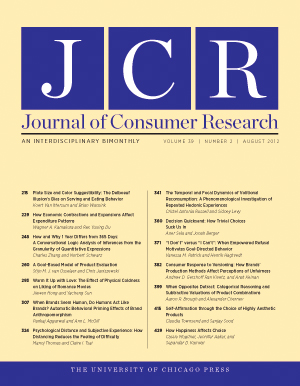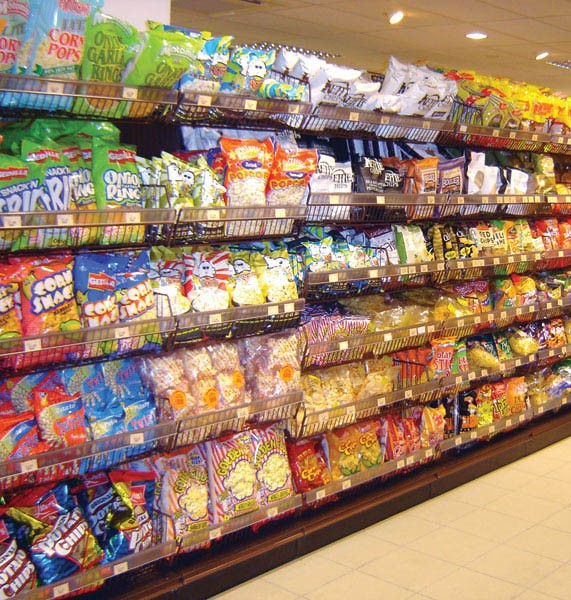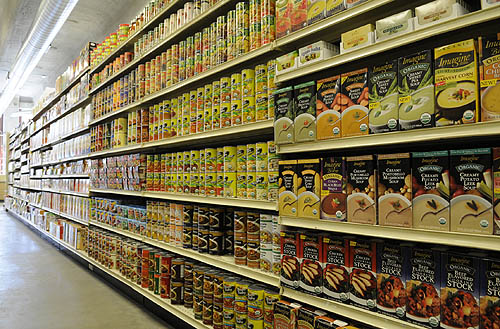Different Shelf Positions Prompt Different Types of Thinking, Buying by Consumers
/If you ever wondered why store shelves are stocked as they are, or whether the location of various items impacts which ones make it into your shopping cart, new academic research is providing some answers. It turns out that looking up and looking down to survey store shelves can influence your purchasing decisions. When people have to look downward to see a product, their thinking becomes more concrete; when they have to look upward, it becomes more abstract, according to a research team led by Anneleen van Kerckhove, a researcher at Ghent University in Belgium.
 Abstract processing has several effects on consumers, such as increasing their willingness to pay. The presumed source of the effect is that people are accustomed to looking downward to process nearby, concrete information and upward to absorb distant, more-abstract information, the researchers say.
Abstract processing has several effects on consumers, such as increasing their willingness to pay. The presumed source of the effect is that people are accustomed to looking downward to process nearby, concrete information and upward to absorb distant, more-abstract information, the researchers say.
Knowing how looking up or down impacts consumers can help businesses manage product displays. A product placed on a low shelf in a store may be evaluated in terms of specific features, cost, or the likelihood that the product will deliver on its promises. On the other hand, a product placed on a high shelf is more likely to be evaluated in terms of the general purpose it serves.
The research , “The Floor Is Nearer than the Sky: How Looking Up or Down Affects Construal Level,” is published in the April 2015 edition of the Journal of Consumer Research.
, “The Floor Is Nearer than the Sky: How Looking Up or Down Affects Construal Level,” is published in the April 2015 edition of the Journal of Consumer Research.
“Consumers pay attention to different aspects of products depending on whether they are looking down or up when choosing between available products. People are used to paying detailed attention when looking down because everything that happens close to them could be important or dangerous. However, people are more likely to think about the big picture when looking up because they are used to looking at things from more of a distance (to get the full picture),” the researchers, Anneleen Van Kerckhove, Maggie Geuens, and Iris Vermeir, conclude.
Ghent University is one of the major Belgian universities with over 41,000 students and 9,000 employees. It was founded in1817, current faculty conduct in-depth research in both exact and social sciences.
 A year ago, the website BizShifts-Trends pointed out that “Some of the hottest real estate in the country these days is on retail store shelves. Shelf space allocation is a serious issue in retail business. It’s an important tool for attracting customers’ attention, but getting a product on the shelf is no guarantee that it will sell.” The website also noted that “most vendors are willing to pay significant premiums to obtain preferred retail locations on both a promotional and everyday basis.”
A year ago, the website BizShifts-Trends pointed out that “Some of the hottest real estate in the country these days is on retail store shelves. Shelf space allocation is a serious issue in retail business. It’s an important tool for attracting customers’ attention, but getting a product on the shelf is no guarantee that it will sell.” The website also noted that “most vendors are willing to pay significant premiums to obtain preferred retail locations on both a promotional and everyday basis.”
In addition, the website Real Results magazine reports that “Paired with growing private-label popularity, manufacturers are realizing that they must quickly differentiate themselves from their closest competitors by becoming more consumer centric at the shelf level.”
Now research suggests that the difference between looking up and looking down can also impact the chance of products moving off the shelf and into the grocery cart.






























